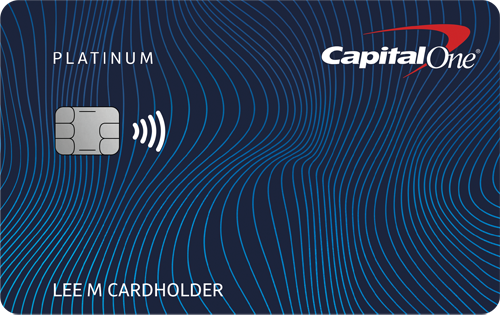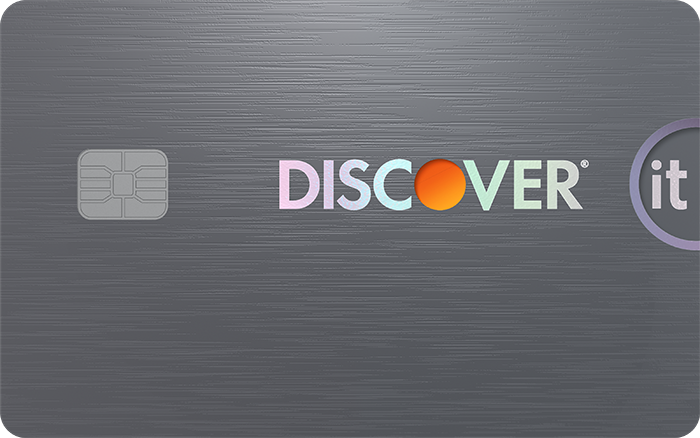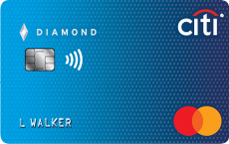You can get your first credit card without a credit score. It's easier than you'd think: Credit card issuers want you to build credit with them, so you've got options. Once you open your first card, you can start building a credit history and earning rewards or cash back on your purchases.
But choosing and using a credit card the right way takes effort. The best first credit cards require a little shopping around to find. Below, we'll help you select the best credit card for you, and we'll show you how to get started responsibly. That way, you can swipe with confidence.
Why get a credit card at all?
Credit cards help you build credit fast. But there's more: credit cards are a secure way to pay and some reward you for purchasing goods and services.
There are a handful of ways to establish a credit history. Swiping a secured credit card is one of the best. The perks of doing so include lower interest rates when you someday buy a home or a car. Plus, the better your credit score, the more likely companies will loan you money at all.
Credit cards are also the safest way to make online purchases and are less costly than cash or debit cards if lost or stolen. Legally, you're only liable for up to $50 in unauthorized credit card purchases, and most credit card companies offer their cardholders $0 fraud liability policies.
Plus, credit cards offer more rewards than debit cards. When you use cash or a debit card, you remove the risk of incurring debt, but also miss out on earning cash back, rewards points, and travel miles.
What you need to get your first credit card
Credit cards are useful. But how do you actually get your first credit card? You'll need to meet a few basic criteria to qualify:
- Be at least 18 or older
- Be a U.S. citizen or a resident with a Social Security number
- Own a checking account
- Have proof that you can make payments
The first and last points are flexible. You can qualify for a credit card at 18 if you have proof you can make payments, like an independent source of income. However, allowances or gifts don't count as income. If you don't have verifiable income, you may need a cosigner over 21 with good credit to back you up. Many credit companies don't allow cosigners, though.
Provided you meet these requirements, you can apply for your first credit card (and get approved). The steps for application are the same regardless of whether it's your first time. It's usually fast and easy to apply; you may be approved (or not) within minutes.
Can I get a credit card with no credit?
Yes. There are two main types of credit cards available to those without a credit history: student credit cards and secured credit cards. More on each below.
Student credit cards
Student credit cards are marketed toward college students who lack an established credit history, and they're some of the easiest cards to get. Credit card issuers want you as a long-term customer, so they offer students plenty of perks.
Most student credit cards don't charge annual fees, and many offer rewards. In fact, many student credit cards are similar to regular consumer cards, with rewards to match. For example, the Discover it® Student Cash Back offers rewards, like a welcome bonus that matches the cash back you earn in the first year. But you can earn the same rewards on the regular Discover it® Cash Back.
The main downside: You'll likely start with a very low credit limit. You'll want to keep your balances low to avoid a high utilization rate, how much you use versus how much you have available. Avoid maxing out your card(s) -- this could hurt your credit score.
Secured credit cards
If you're not a current student and have no credit history, a secured credit card is the way to go. These cards are so named because they require a (fully refundable) security deposit to open and maintain the account.
Most secured cards require a minimum deposit of $300 to $500. Since the credit limit of your secured credit card typically equals your deposit amount, you must put down a larger deposit to get a higher credit limit. If you default on your credit card balance, the issuer can close your account and use your deposit to pay off your outstanding debt.
Many secured credit cards have zero annual fees; some even offer modest purchase rewards. Don't sweat the rewards, though. Secured cards are supposed to build your credit history, not your points balance. Once your credit is established, you can seek better rewards.
Unsure where to start? Check out some of our favorite secured credit cards below.

|

|

|
| Capital One Platinum Secured Credit Card | Discover it® Secured Credit Card |
Citi® Secured Mastercard® |
|
Rating image, 4.00 out of 5 stars.
4.00/5
Our ratings are based on a 5 star scale.
5 stars equals Best.
4 stars equals Excellent.
3 stars equals Good.
2 stars equals Fair.
1 star equals Poor.
We want your money to work harder for you. Which is why our ratings are biased toward offers that deliver versatility while cutting out-of-pocket costs.
|
Rating image, 5.00 out of 5 stars.
5.00/5
Our ratings are based on a 5 star scale.
5 stars equals Best.
4 stars equals Excellent.
3 stars equals Good.
2 stars equals Fair.
1 star equals Poor.
We want your money to work harder for you. Which is why our ratings are biased toward offers that deliver versatility while cutting out-of-pocket costs.
|
Rating image, 3.75 out of 5 stars.
3.75/5
Our ratings are based on a 5 star scale.
5 stars equals Best.
4 stars equals Excellent.
3 stars equals Good.
2 stars equals Fair.
1 star equals Poor.
We want your money to work harder for you. Which is why our ratings are biased toward offers that deliver versatility while cutting out-of-pocket costs.
|
|
Apply Now for Capital One Platinum Secured Credit Card
On Capital One's Secure Website. |
||
|
Credit Rating Requirement:
Falling within this credit range does not guarantee approval by the issuer. An application must be submitted to the issuer for a potential approval decision. There are different types of credit scores and creditors use a variety of credit scores to make lending decisions.
Recommended Credit Score required for this offer is: Fair/New to Credit Under(669)
Fair/New to Credit Under(669) |
Credit Rating Requirement:
Falling within this credit range does not guarantee approval by the issuer. An application must be submitted to the issuer for a potential approval decision. There are different types of credit scores and creditors use a variety of credit scores to make lending decisions.
Recommended Credit Score required for this offer is: New/Rebuilding Under(579)
New/Rebuilding Under(579) |
Credit Rating Requirement:
Falling within this credit range does not guarantee approval by the issuer. An application must be submitted to the issuer for a potential approval decision. There are different types of credit scores and creditors use a variety of credit scores to make lending decisions.
Recommended Credit Score required for this offer is: New to Credit Under(579)
New to Credit Under(579) |
|
Welcome Offer: N/A N/A |
Welcome Offer: Discover will match all the cash back you’ve earned at the end of your first year. |
Welcome Offer: N/A |
|
Rewards Program: — |
Rewards Program: 2% cash back at Gas Stations and Restaurants on up to $1,000 in combined purchases each quarter. 1% unlimited cash back on all other purchases - automatically 1% - 2% Cashback |
Rewards Program: N/A |
|
Intro APR: Purchases: N/A Balance Transfers: N/A |
Intro APR: Purchases: n/a Balance Transfers: 10.99%, 6 months |
Intro APR: Purchases: N/A Balance Transfers: N/A |
|
Regular APR: 29.99% (Variable) |
Regular APR: 28.24% Variable APR |
Regular APR: 27.74% (Variable) |
|
Annual Fee: $0 |
Annual Fee: $0 |
Annual Fee: $0 |
|
Highlights:
|
Highlights:
|
Highlights:
|
|
Apply Now for Capital One Platinum Secured Credit Card
On Capital One's Secure Website. |
||
Show More
 Show Less
Show Less
|
||
Choosing the best first credit card
Advertisers hawk enough credit cards to make the average American's head spin. It's a lot for first-time credit card users. Let's keep things simple: when shopping around, keep in mind these four factors:
- Zero annual fee: Avoid cards that charge annual fees to keep your account open. Cards with annual fees are best left for when you're a more experienced credit card user.
- Reasonable grace period: The grace period tells you how many extra days you have to pay your credit card bill before you start accruing interest fees. Make sure your first card offers a reasonable grace period so you don't get charged.
- Low annual percentage rate (APR): The APR tells you how much interest you'll be charged on any balances you carry from month to month. If you pay your balance in full each month, the APR shouldn't matter. In general, though, a lower APR is better.
- Relevant rewards: Rewards aren't the most important thing for first-timers, but they can help you choose between two great cards. Choose rewards that best match the purchases relevant to your lifestyle. That way, you get the best return on your spending.
While choosing your first card, remember that it's just that: your first card. This isn't your forever card. Pick a card that helps you build credit responsibly without breaking the bank. Once you're ready to move on, you can upgrade to a better credit card.
Don't you wish you could take a peek inside a credit card expert's wallet sometimes? Just to see the cards they carry? Well, you can't look in anybody's wallet, but you can check out our experts' favorite credit cards. Get started here:
How to use your first credit card the right way
So, you've been approved for a starter credit card. Now what? You can use a credit card to build a positive credit history that makes it easier to secure new loans or lines of credit. But only if you use that new card wisely.
The most important thing: Pay your credit card bills on time every single month. Late payments cost you fees, and if you fall more than 30 days behind, your credit score is in for some heavy damage -- especially when you only have a limited credit history.
The second most important thing: Pay your credit card bills in full. You can get away with only making minimum payments, but there's a catch. You pay interest fees, and if you're using 30% or more of your credit limit, your score could drop significantly. Pay in full to avoid that.
Limit how often you apply for a credit card. Each time you apply, the lender performs a hard credit inquiry that lowers your credit score a bit. Plus, new credit cards shorten your credit history. Stick to your first credit card for six months to a year to let your credit history grow.
Your first credit card is just the tip of the iceberg. The opportunity for cheaper borrowing grows as you build your credit score the right way. Perks include top-tier credit cards and lower mortgage payments when it comes time to buy a home -- and it all begins with your first credit card.
Related reads
FAQs
-
You usually can't get a credit card in your own name unless you're a legal adult. Most credit card companies require you to build credit with a starter credit card before you can upgrade to the good stuff. But some companies may let underage applicants apply alongside a parent or guardian to get a card before they turn 18.
-
Not typically. So long as you meet basic requirements, you can typically get approved for a student or a secured card designed for users with no credit. These may be more limited than non-starter cards, though, so be aware.
But if you've established a credit history without a credit card, and your credit score is spotty, then getting approval for a credit card may be hard. It may take time to build credit so you can more reliably qualify for a credit card.
Our Credit Cards Experts
We're firm believers in the Golden Rule, which is why editorial opinions are ours alone and have not been previously reviewed, approved, or endorsed by included advertisers. The Ascent does not cover all offers on the market. Editorial content from The Ascent is separate from The Motley Fool editorial content and is created by a different analyst team.